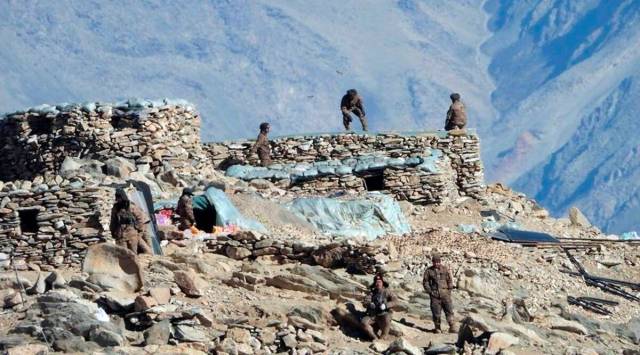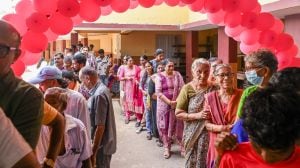A joint statement issued Thursday said the talks were “frank and in-depth” and “in line with the guidance provided by the leaders of the two countries to work for the resolution of the remaining issues at the earliest”.

“In the interim, the two sides agreed to maintain the security and stability on the ground in the Western sector,” it stated, referring to the eastern Ladakh region.
In September, Indian and Chinese troops disengaged in the Gogra-Hot Spring area, the last of the acknowledged “friction points” that were discussed over 16 rounds of Corps Commander level talks that began in June 2020, after Chinese incursions at several points weeks earlier.
Tensions in Ladakh continue over the presence of Chinese troops in Depsang, intrusions in Demchok and the rapid Chinese infrastructure build-up, including two bridges over Pangong Tso that will reduce Chinese mobilisation time on the lake’s southern bank.
ExplainedThe remaining issues
the Indian pushback in Tawang came at a time when issues remain to be resolved in Ladakh, where there is tension over the presence of PLA troops in Depsang, intrusion in Demchok and Chinese infra build-up along LAC.
Stating that the 17th round of India-China Corps Commander level meeting was held at the Chushul-Moldo border meeting point on the Chinese side on December 20, Arindam Bagchi, spokesperson for the Ministry of External Affairs, said the two sides exchanged views on the resolution of the relevant issues along the LAC in the Western sector in an “open and constructive manner”.
“They had a frank and in-depth discussion, keeping in line with the guidance provided by the state leaders to work for the resolution of the remaining issues at the earliest which would help in restoration of peace and tranquillity along the LAC in the Western sector and enable progress in bilateral relations,” the statement said.
Story continues below this ad
“The two sides agreed to stay in close contact and maintain dialogue through military and diplomatic channels and work out a mutually acceptable resolution of the remaining issues at the earliest,” it said.
“Building on the progress made after the last meeting on 17th July 2022, the two sides exchanged views on the resolution of the relevant issues along the LAC in the Western Sector in an open and constructive manner,” it said.
Indian and Chinese troops clashed in Arunachal Pradesh’s Tawang sector in the early hours of December 9, assaulting each other with sticks and canes in their closest encounter since the deadly Galwan incident in eastern Ladakh in June 2020.
Asked whether the incident in Arunachal Pradesh was raised, the MEA spokesperson did not give a direct response.
Story continues below this ad
“We can all speculate but since I don’t have a confirmation, I am not going to be able to confirm that. We did talk about, to be honest, about the Western sector. So if it has not been raised, I wouldn’t be surprised. Let me not make a comment either.”
He said, “We have been emphasising that our soldiers will stand firm to guard our frontiers. So I don’t want to say anything beyond that.”









